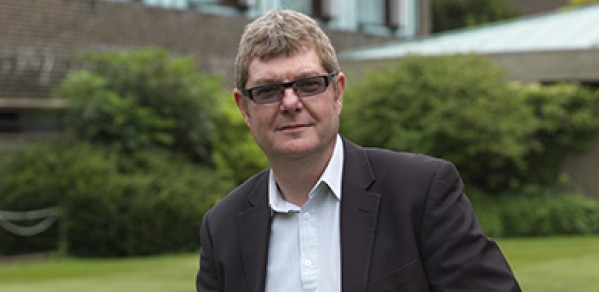
Professor David Cardwell takes over from Professor Dame Ann Dowling who led the Department for 5-years. Ann is now President of the RAEng, while continuing in the Department with her research and teaching.
My aim is to do everything I can to allow everyone here to perform at their best, engage with real issues and make a difference.
Professor David Cardwell
“Ann Dowling is a hard act to follow. She has left the Department in excellent shape on all fronts. Our rankings, financial performance and growth have been outstanding.” says David.
The Department now has over 180 academics and principal investigator status researchers, over 1200 undergraduates, over 800 graduate students, over 260 postdoctoral researchers and a turnover exceeding GBP70M. It is one of the world's top ranked engineering departments jockeying for leadership at the top of the board. Teaching has also stormed forward winning accolades from reviewers in the accreditation process.
David adds "Engineering at Cambridge is an integrated department comprised of the best academics, staff and students from around the world. Not only do we top the academic rankings, but we deliver practical outcomes for society. I feel a great sense of both excitement and responsibility in leading this institution given the influence it has on pivotal issues such as energy, cities, transport, healthcare and manufacturing. My aim is to do everything I can to allow everyone here to perform at their best, engage with real issues and make a difference.
“It would be easy to get complacent given this success, but I see a tremendous opportunity to take the Department to a new level. Engineering in most universities is split into separate departments; but we are one department. This structural advantage means we can tackle the really big challenges facing society. But this strength is tempered by our old and scattered building stock. Uniting on one site with new purpose-built facilities and the right support will unlock the full potential of our brilliant people. This is the change I wish to bring.”
David is assembling his team, consulting staff and making plans for this transformation. He notes “I will not jump the gun by announcing plans ahead of consultation with all members of the Department, but I can promise that the plans will not only represent a leap forward for Engineering at Cambridge, but a leap forward for engineering globally. I look forward to sharing more news publicly in the Spring next year.”
Professor David Cardwell FREng
David Cardwell is Professor of Superconducting Engineering in the Department of Engineering, University of Cambridge, having been Deputy Head of Department (Graduate Studies) for six years prior to 2013. He leads the Bulk Superconductivity research group at Cambridge on the processing and applications of bulk high temperature superconductors, which can be used to generate very high magnetic fields. He was a founder member of the European Society of Applied Superconductivity (ESAS) in 1998 and has served as a Board member and Treasurer of the Society since 2007. He is an active board member of five international journals, including Superconductor Science and Technology, and has co-authored over 300 technical papers and patents. He collaborates widely around the world with academic institutes and industry. He is currently Chair of the University of Cambridge Board of Graduate Studies. Professor Cardwell was elected to a Fellowship of the Royal Academy of Engineering in 2012 in recognition of his contribution to the development of superconducting materials for engineering applications. Professor Cardwell has been a Fellow of Fitzwilliam College for more than 20 years, where he was Tutor and Admissions Tutor for Sciences until 2013.

